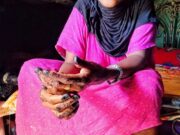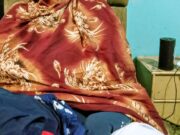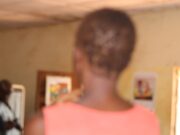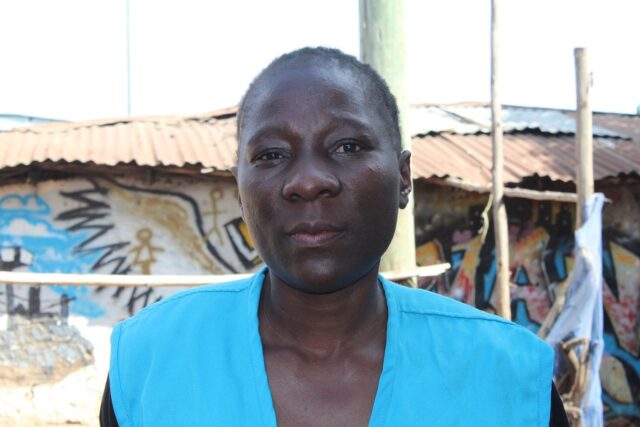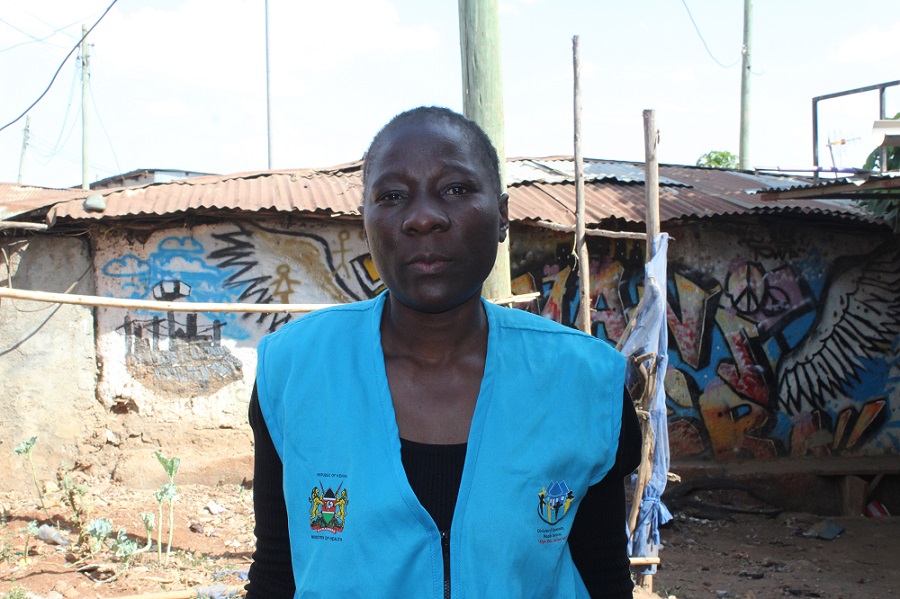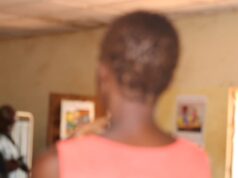Judith Shitabule, 44, is a Community Health Volunteer (CHV) and reproductive health advocate based in Kibera, Nairobi. Judith monitors 100 households in her allocated area; Lindi. On average, each household has about eight people, including children. In a month, she must visit at least 34 households. At the end of each quarter, she visits all 100 households at least once.
Pregnant women
As a CHV, Judith pays particular attention to pregnant women. She identifies them and ensures she visits each one of them at least once a month. Judith offers pregnant women health education, emphasizing on their need to make at least four antenatal care (ANC) visits to the hospital, as recommended by health experts. ANC visits are important for screening and diagnosis as well as injury and disease prevention. The visits are also important in pre-birth and post-birth preparedness.
Delayed first ANC visit
While it is recommended that a woman make her first antenatal visit before 10 weeks into her pregnancy, Judith notes that many pregnant women in Kibera delay their first ANC visit until the third trimester.
“They say the queues at the clinic are too long, hence wasting their time. The clinic run can take up to four hours, time they say will prevent them from performing their domestic chores, running their small businesses, or caring for their other children. Most delay ANC visits until the seventh or eighth month of pregnancy “when they are ready to give birth,” says Judith.
That is why Judith pays particular attention to pregnant women because she knows the value of antenatal clinics, and fears that women who don’t attend them remain vulnerable to negative pregnancy outcomes.
“I tell them that pregnancy is a critical time in their life, and it is therefore important for them to have their health and progress monitored in a hospital. I alert them it also helps detect any problems with the pregnancy, such as if they have anaemia, rhesus factor, low weight etc.,” she says.
Mother and child booklet
Judith makes certain that each pregnant woman has her own copy of the Mother and Child Health handbook/booklet that is available in public health facilities. This booklet contains a wealth of information about pregnancy, childbirth and after childbirth until the child is five years old.
“I stress to them the need to carefully read the contents of the booklet as it contains lifesaving information, such as the danger signs in pregnancy and how to identify them,” she says.
Pregnancy danger signs
Danger signs in pregnancy include severe headache, fever, swelling of face, hands and legs, vaginal bleeding, severe abdominal pain, convulsions/fits, and reduced or no movement of the unborn baby.
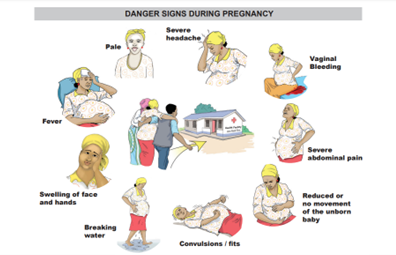 Judith also educates them on healthy eating during and after pregnancy.
Judith also educates them on healthy eating during and after pregnancy.
“I tell them that a nutritious diet shouldn’t be expensive. There are many nutritious options within their reach, such as eggs, green leafy vegetables, fish, beans and fruits –all affordable and accessible within Kibera.”
They don’t read
While all this information is contained in the mother child booklet, Judith notes that unfortunately, most of the pregnant women she hands the book to don’t read it.
“I even give them homework, telling them that when I return for my next visit, they will share with me snippets of what they read. For those who cannot read, I tell them to look at the pictures and try and understand the message. I tell them to take note of any concerns or questions they may have, which I answer in my next visit,” she says.
However, when Judith visits them again, she is often disappointed.
“I find they did not even open a single page. They say they prefer waiting for my next visit so that I can educate them; that it is easier for them to hear from me than to read or look at pictures, because it is less complicated.”
Also read: How health workers in Kibera are assessing sick children using a new digital health tool
Community advocate
Judith has been a CHV for the last 20 years. She has been trained by both the government and stakeholders in the private sector, including NGOs, in different issues surrounding community health. She also works closely with local leaders such as Members of County Assembly and the Nairobi woman representative to advocate for various issues, such as the availability of ambulances, better referral systems, improved road networks and staffing of nurses and doctors in health facilities that are accessible to the Kibera population.
In this next article, Judith recounts an incident where she was woken up in the middle of the night to assist a woman who had delivered by the roadside and was experiencing a birth complication. Read it here.
Do you have feedback on this article? Comment down below or email me at wawerumw@gmail.com
Also watch: Challenges faced by married Somali women refugees as they seek family planning services in Nairobi
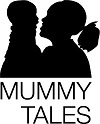 Mummy Tales is a platform dedicated to empowering its readers on different aspects of womanhood and motherhood. Read more motherhood experiences of Kenyan moms here. Connect with Mummy Tales on: FACEBOOK l YOU TUBE l INSTAGRAM l TWITTER
Mummy Tales is a platform dedicated to empowering its readers on different aspects of womanhood and motherhood. Read more motherhood experiences of Kenyan moms here. Connect with Mummy Tales on: FACEBOOK l YOU TUBE l INSTAGRAM l TWITTER














